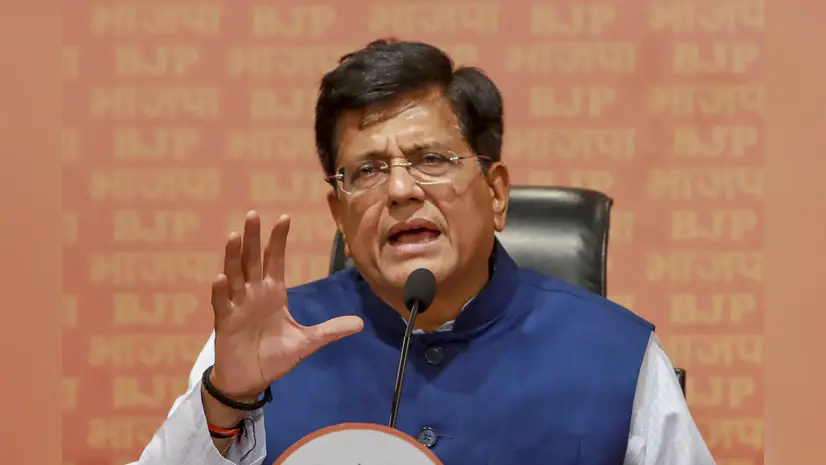As the United States prepares to enforce steep new tariffs on Indian goods, Union Commerce Minister Piyush Goyal has made it clear that India will not be pressured into signing any trade agreement based on arbitrary deadlines. With US President Donald Trump’s administration set to start issuing tariff letters to trading partners ahead of the July 9 deadline, Goyal emphasised that India’s national interest will always be paramount in any negotiation.
Speaking to reporters after a high-level Indian delegation returned from Washington without a final deal, Goyal reiterated that India does not conduct trade talks under pressure or on a fixed timeline. “India discusses on its own terms and we never make a trade deal based on a timeline; when the deal is good, fully matured, and in the national interest, then we accept it,” he said, underlining that ongoing negotiations with the US, European Union, New Zealand, Oman, Chile, and others are all guided by this principle. He further stressed that “free trade agreements are possible only when there is two-way benefit, it should be a win-win agreement. National interest will always be supreme”.
Tarrif Deadline
The urgency of the situation is clear. President Trump has threatened to impose a 26% tariff on all Indian exports to the US if no agreement is reached by July 9. This move follows a 90-day pause on tariffs announced in April, which was meant to give countries time to negotiate new terms with the US. Now, as the deadline approaches, India’s key export sectors—pharmaceuticals, textiles, and automotive parts—face the risk of major disruption. Trump has stated that the US will begin sending out tariff notices to countries, including India, with rates ranging from 10% to as high as 70%, effective from August 1.
Trade talks between India and the US have hit significant roadblocks, particularly over US demands for deeper tariff cuts on Indian imports of farm goods, cars, and alcoholic beverages, as well as the easing of non-tariff barriers. India, meanwhile, is seeking relief for its own exports and is resisting opening up politically sensitive sectors like agriculture and dairy. Indian officials have made it clear that they will not compromise on these points simply to meet the US deadline.
Despite the pressure, Goyal has assured Indian exporters and the public that the government is working with “speed but not in undue haste” to ensure the best possible outcome for the country. He has also highlighted India’s willingness to engage in fair and mutually beneficial trade deals with developed countries, but only when the terms are right and the agreement is fully in the national interest. “We never negotiate at gunpoint. Favourable time constraints motivate us for quicker talks, but till the time we are not able to secure the interest of our country and our people, we do not hurry,” Goyal said.
In the backdrop of these negotiations, there is also a legal battle underway in the US over the President’s authority to impose such tariffs, with a federal court ruling most of the tariffs illegal but keeping them in effect pending appeal. Meanwhile, India has also proposed retaliatory duties at the World Trade Organization in response to US tariffs on automobiles and auto parts, affecting nearly $3 billion worth of Indian exports.
While there is speculation that a provisional or “mini” trade deal may be announced soon, covering limited tariff relief and select market access enhancements, the government’s stance remains unchanged: no deal will be signed unless it is in India’s best interest and fully addresses the concerns of both sides. The interim agreement, if finalised, is expected to avoid India’s most sensitive sectors and provide breathing room for a broader pact in the future.
As the July 9 deadline draws near, Goyal’s message is clear—India will stand firm, prioritising long-term national interest over short-term deadlines, even if it means facing higher tariffs in the immediate future.


